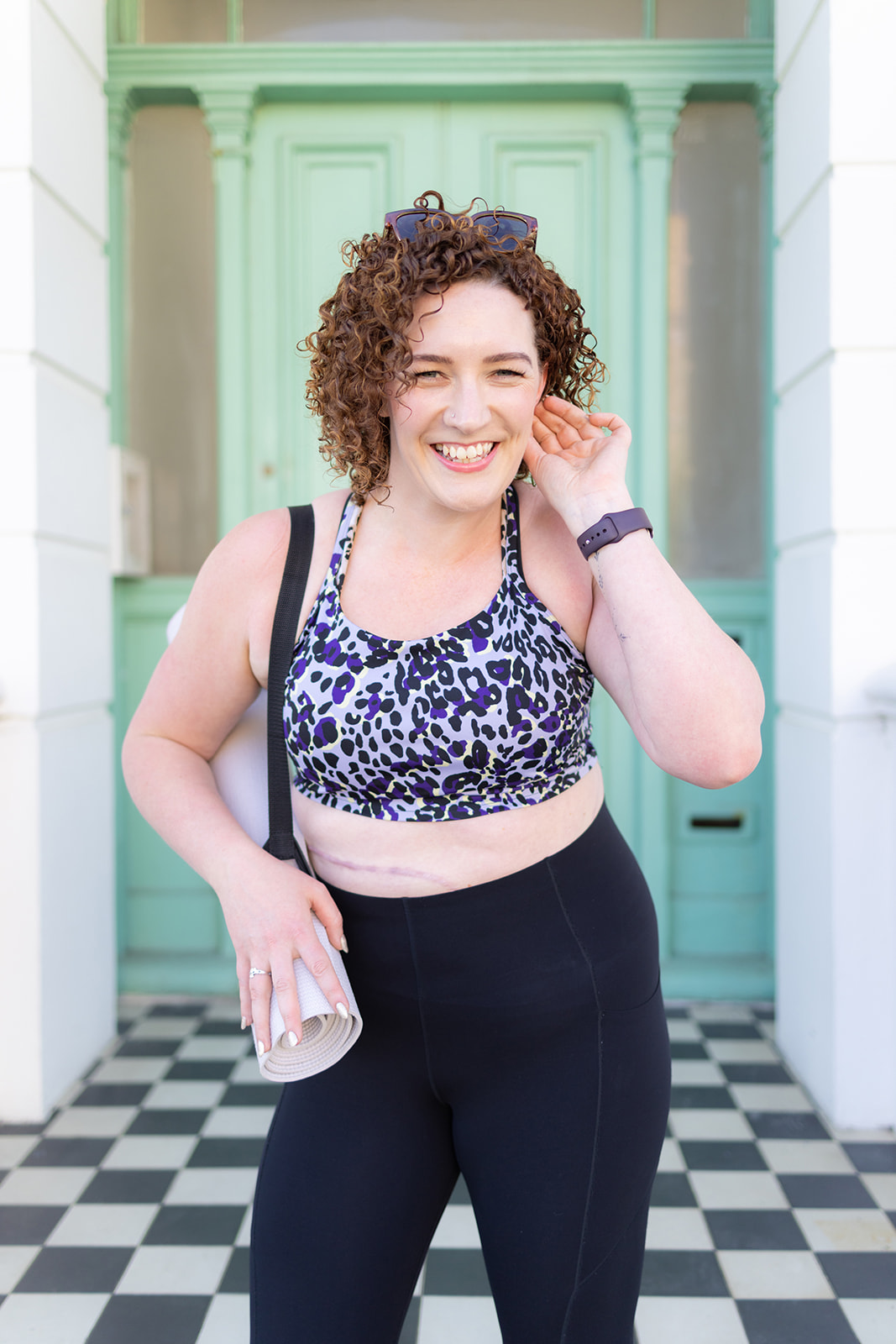In 2018, my life took an unexpected turn when I was diagnosed with a Desmoid tumour – as September is Desmoid Tumor Awareness Month, it feels like the right time to discuss this issue. For those unfamiliar with the term, a Desmoid tumour, also known as aggressive fibromatosis, is a rare type of cancer, forming in the connective tissue of the body. Desmoids are a variety of sarcoma – also known as soft tissue cancers. While Desmoid tumours are benign and don’t spread to other parts of the body, its aggressive nature can cause significant local issues, making treatment complex.
Facing this diagnosis was a whirlwind of emotions, consultations, and medical jargon. Yet, amidst this storm, my deep-rooted passion for fitness stood as a beacon, guiding my recovery and resilience.
The Pre-Diagnosis Era: A Love Affair with Fitness
Fitness, for me, had always been more than just an activity; it was a commitment to my health today and in the future. The gym a place where I challenged myself, grew stronger, and found solace. I was engrossed in the world of reps, sets, and personal bests. This was about more than physical aesthetics; it was about building a mental and emotional stronghold. Little did I know, this would play a pivotal role in the challenges that lay ahead.
Confronting the Diagnosis: Strength Beyond the Gym
Receiving the diagnosis was shattering. But the discipline, resilience, and mental fortitude I’d honed in the gym became invaluable. During recovery from surgery, the memory of my strength training sessions reminded me of my body’s potential to heal and recover. The thought of returning to the gym provided hope, a tangible goal to aspire to amidst the uncertainty.
A New Purpose Emerges
In the throes of recovery, as I grappled with the implications of my diagnosis, the world outside was changing in unprecedented ways due to the COVID-19 pandemic. Gyms, the origin of my newfound strength and favoured hobby, were shuttered. The rhythms and routines that once anchored my days were upended. Like many, the isolation and uncertainties amplified my anxieties and fears.
But it was during these quiet, introspective moments that a spark of purpose ignited within me. As I searched for ways to adapt my fitness routine at home, I stumbled upon the cancer exercise specialist qualification. More than just a course, it resonated deeply with my journey. I saw it as a beacon amidst the chaos, a path forward where I could marry my personal experiences with professional knowledge. The world had come to a standstill, but my drive hadn’t. Within a year, I transitioned from being a patient navigating her own recovery to a certified professional, equipped and eager to guide others through theirs.
Full Circle: From Patient to Professional at the Royal Marsden
The Royal Marsden had been a significant part of my journey, a place of both discomfort and healing. Returning there for the Study Day was surreal. This time, I wasn’t a patient; I was a professional. The day was a treasure trove of knowledge, from insights on pelvic health to the cardiac impacts of treatments. Every session reinforced my belief in the invaluable intersection of fitness and recovery.
Changing the Recovery Narrative
One revelation from the Study Day that resonated with me was the emphasis patients often place on diet over exercise. This trend speaks volumes about our deeply ingrained diet culture. My experience stands as a testament to the transformative power of fitness, and I’m on a mission to shift this narrative.
The discussions around service accessibility also hit home. It’s essential for us, as professionals, to rethink our approach, ensuring our services are accessible to everyone. We need to be proactive, identifying gaps and making the necessary changes.
Patients: Not Just Checklists, But Stories
I recognised that we, as patients, are not mere checklists or neat packages. We’re stories, complex narratives with unique challenges and aspirations. Embracing this mindset is crucial to offer truly holistic care. It’s about seeing the person, not just the patient.
The Path Forward
The synergy between fitness and oncology is an exciting frontier. As I delve deeper into this world, one message stands clear: exercise is not an optional extra; it’s fundamental to recovery. And for anyone embarking on this journey, know that there are professionals like me, equipped with both personal experience and expertise, ready to guide you.
With every step and every lesson, my determination to champion the cause of integrating fitness into recovery grows. The horizon is bright, and I’m here, embracing the challenge and the promise it holds.
